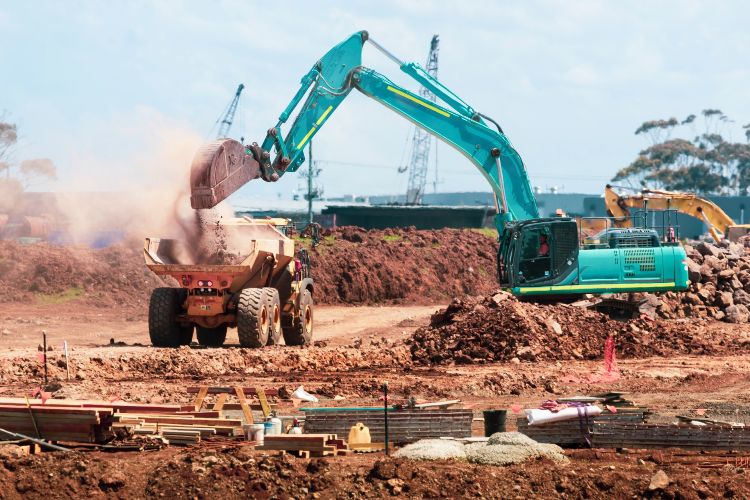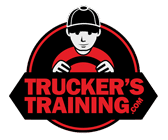Every entrepreneur has to take care of a myriad of paperwork and permits before starting a business. The process can be daunting, but it’s important to know what’s required in order to stay compliant and avoid costly fines.

In this post, we’ll detail the permits, special taxes, and licenses required to start a dump truck business.
The most important permit you’ll need is a Commercial Driver’s License (CDL) if you plan on driving the dump trucks, as well as running the show.
How to Get Started?
The best way to get started is to contact your state’s Department of Transportation and ask for a list of the permits and licenses you’ll need. You can also visit your state’s website to find more information.
In addition, you’ll need to register with the IRS and obtain an Employer Identification Number (EIN). This number is used to track your business income and expenses. Once you have all of the necessary paperwork in order, you can start operating your business. Just be sure to always stay up-to-date on any changes or updates to the regulations.
Permits and Licenses Required for a Dump Truck Business
Before you can start a dump truck business, you need to make sure you have the proper permits and licenses in place. Each state has its own requirements, but there are a few common permits that are required in most states.
The most important permit is usually your business license. This document lets the state know that you are in fact operating a business. Other permits and licenses may be required depending on your specific business plan, so it’s best to check with your local licensing office for more information.
Some of the more common permits and licenses include:
Business License
If you want to start a dump truck business in the United States, you’ll need to get a business license from your state.
The requirements and procedures for obtaining a business license vary from state to state. Generally, you’ll need to submit an application, pay a fee, and provide some basic information about your company.
In addition to a business license, you may also need to obtain special permits or licenses to operate your dump truck business. For example, you may need a permit to transport hazardous materials or operate in certain areas. Contact your state’s department of transportation or licensing authority for more information.
DOT Registration
For this process, you’ll need to provide a few key pieces of information. This includes your company name, contact information, type of truck, and the state in which you’ll be operating.
You’ll also need to provide proof of insurance and a safety plan. This document outlines how you plan to ensure the safety of both your employees and the general public while operating your truck.
To get a US DOT number, you’ll need to be authorized to do business in the United States. This number serves as a unique identifier for your business.
Tax ID Number
If you’re looking to start a dump truck business, you’ll need to obtain a Tax ID number (TIN). This is an identification number that the IRS assigns to businesses, and it’s required for tax purposes. You can apply for a Tax ID number online.
The process is simple and can be completed in just a few minutes. You’ll need to provide some basic information about your business, including your name, address, and contact information. You’ll also need to provide your Social Security number or individual taxpayer identification number.
Once you’ve applied, you should receive your Tax ID number within a few weeks. Keep it in a safe place, as you’ll need to provide it to the IRS when you file your taxes.
Vehicle Registration
You will need to get a Vehicle registration for your dump truck. The process is fairly straightforward, but there are a few things you will need to have in order.
First, you will need the title of the truck. The title must be in your name in order to register the truck. Next, you will need proof of insurance. This can be a copy of your insurance card or declaration page. Finally, you will need to pay the registration fee. The fee varies depending on the state you reside in.
Once you have all of this information, you can visit your local DMV office and apply for registration. Be prepared to wait in line, as this can be a very popular process.
Special Taxes for a Dump Truck Business
There are a few special taxes that are often required to start a dump truck business. In California, for example, you must pay the Motor Vehicle Fuel Tax, which is a per gallon tax on diesel and gasoline fuel. You must also pay the Sales and Use Tax, which is a tax on the purchase of most goods and services in the state.
Other states have their own specific taxes that must be paid in order to start a dump truck business. It’s important to research the requirements in your state so that you’re aware of all the taxes and fees you’ll need to pay.
Heavy Vehicle Use Tax (HVUT)
If your dump truck is used for business purposes, you’ll need to pay the HVUT tax. The HVUT tax is a federal tax that applies to trucks and other heavy vehicles that weigh 55,000 pounds or more.
The tax is based on the vehicle’s weight, and you’ll need to pay it every year. This tax is assessed on all commercial vehicles that operate on public highways. The rates vary depending on where you live, so it’s best to consult your state’s Department of Transportation for more information.
Finally, you’ll need to register your business with the state and local government. Each state has different requirements, so it’s important to do your research ahead of time.
You can file for an exemption if your truck is used for farming or other exempt activities. For more information on the HVUT tax and how to file for an exemption, visit the IRS website.
Conclusion
Starting a dump truck business can be a lucrative endeavor, but it’s important to understand the various permits, special taxes, and licenses required to do so. By knowing what’s required upfront, you can avoid any costly surprises down the road.

Sasha is a freelance writer for TruckersTraining.com and an entrepreneur. She has 10+ years experience as a writer with expertise in the transportation, business and farming industry. She is a wife, a mother, and co-owner of DreCampbell.com.
